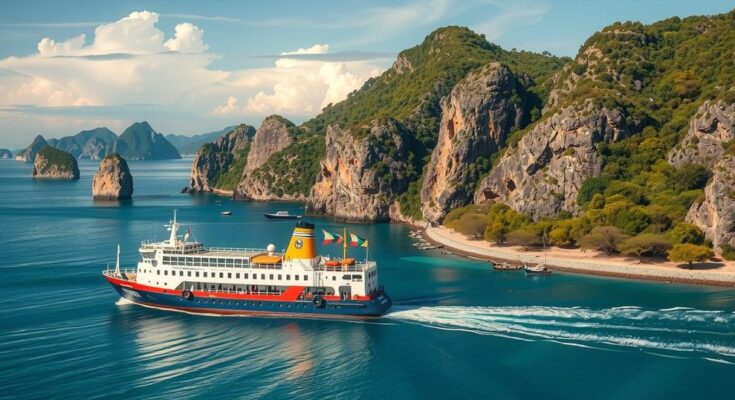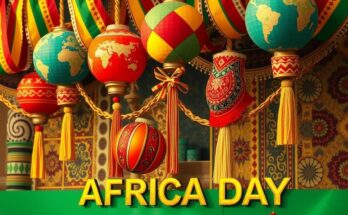The Great Passage cruise will navigate the transatlantic route once taken by enslaved Africans, reversing the journey to educate about the legacy of the slave trade. Helena Monteiro da Costa, whose father was enslaved, plans to participate in the historic voyage back to Angola. The initiative aims to honor the memory of those who suffered and to foster understanding between Brazil and Angola regarding their shared past of slavery.
Next year, the inaugural Great Passage cruise is set to traverse the transatlantic route that forcibly transported millions from Africa to the Americas, this time reversing the journey in a solemn effort to educate participants about the legacy of the slave trade. Helena Monteiro da Costa, a 99-year-old whose father was enslaved and brought from Angola to Brazil in the 19th century, hopes to join this historic voyage back to her ancestral homeland. The cruise aims to address the harrowing history of slavery, commemorating the millions who suffered under this brutal system, and to promote a greater understanding of this painful chapter in both Brazilian and Angolan history.
During the height of the transatlantic slave trade from the 16th to the 19th centuries, Brazil emerged as the largest recipient of enslaved Africans, receiving approximately five million individuals. Many of these people were forced to endure deplorable conditions during their transport from Angola on Portuguese ships, a grim reality of the historical connection between these two nations. By retracing this path, the Great Passage cruise seeks not only to honor the memories of those enslaved but also to foster dialogue and reflection on their shared heritage.
The Great Passage cruise represents a significant historical and educational initiative aimed at confronting the dark legacy of the transatlantic slave trade. This trip not only commemorates the journey of millions who were forcibly taken from their homes in Africa but also serves as a platform for survivors’ descendants to connect with their heritage. The cruise underscores the importance of understanding the implications of this past for present and future generations in both Brazil and Angola, as it strives to provide a space for healing and education.
In essence, the Great Passage cruise symbolizes an important effort to reverse the historical voyage taken by enslaved Africans, specifically those transported from Angola to Brazil. By engaging participants in this journey, the cruise aims to educate about the ramifications of the slave trade while fostering a deeper connection to one’s heritage. This initiative serves as a crucial reminder of the resilience of those who endured slavery and the ongoing need for accountability and reflection upon this historical injustice.
Original Source: www.scmp.com




